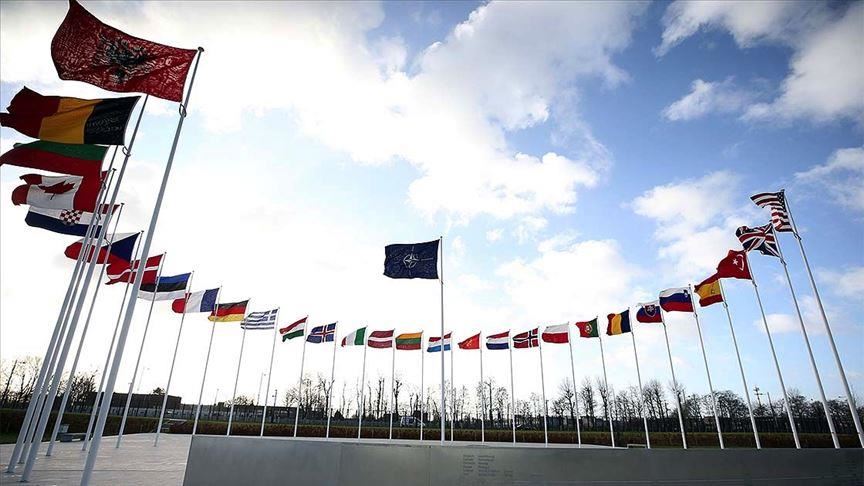
BRUSSELS
French President Emmanuel Macron’s comments last fall labeling NATO “brain dead” amount to little more than political rhetoric, said a prominent Paris-based political scientist.
“It’s political rhetoric. If Macron thinks that NATO is brain dead, then he should get out of NATO,” Charles Saint-Prot, director of the Observatory of Geopolitical Studies, told Anadolu Agency.
“France has nothing to do in NATO. He should have the courage to do it,” he added.
Saint-Prot said France wants to get closer to Russia, but he does not need NATO to do it, adding that France’s policies suffer from inconsistencies.
Macron’s controversial “brain dead” comments came last November, after Turkey began its anti-terror Operation Peace Spring to eliminate YPG/PKK terrorists from northern Syria east of the Euphrates River
The operation was launched on Oct. 9 to secure Turkey’s borders, aid in the safe return of Syrian refugees, and ensure Syria’s territorial integrity.
Speaking to The Economist magazine, Macron said that he was not sure if he still believes in NATO’s Article 5 on collective defense, often summed up as: "An attack against an ally is considered an attack against all allies."
The French president also criticized Turkish-US cooperation in Syria.
In its more than 30-year terror campaign against Turkey, the PKK – listed as a terrorist organization by Turkey, the US and the European Union – has been responsible for the deaths of nearly 40,000 people, including women, children, and infants. The YPG is the PKK's Syrian offshoot.
Macron reiterated his controversial remarks after Turkey signed several economic and security cooperation agreements with Libya’s UN recognized legitimate government in late November.
Last week France claimed that Turkey had harassed one of its vessels taking part in a NATO mission in the Mediterranean, but Turkey strongly denied the accusations.
After meeting with Tunisian President Kais Saied in Paris, Macron on Monday criticized Turkey’s support for the Libyan government against warlord Khalifa Haftar, who is backed by France, Egypt, the United Arab Emirates (UAE), and Russia.
Turkey, in turn, has said Macron’s support for Haftar is misguided and promotes chaos in the region, not peace.
‘Friction between allies nothing new’
Ian Lesser, executive director of the Brussels office of The German Marshall Fund of the United States, on the other hand, said NATO continues to be a successful organization.
“NATO is one of the few functioning international organizations. In that sense the alliance is in quite good shape,” he said.
Lesser said that NATO has made it clear that it continues to be valid, both through threats from Russia and its attitude towards China's rising power and solidarity during the pandemic period.
On relations between Turkey and France, Lesser said frictions between NATO allies come as no surprise.
“These kinds of tensions are nothing new in the region and nothing new in terms of NATO policy or politics,” he explained.
“So, in a sense this is a longstanding challenge for NATO, NATO normally does what its members wish to do, so, the alliance is quite a constraint to being able to manage these tensions among allies.”
Lesser said Macron’s “brain dead” comments stem from his desire for “for NATO to become more a political alliance, not just an operational military alliance.”
“I think he exaggerates a bit, but what he is looking for is a reassurance of consultation and transparency, [and] than he has maybe an important point,” he said.








